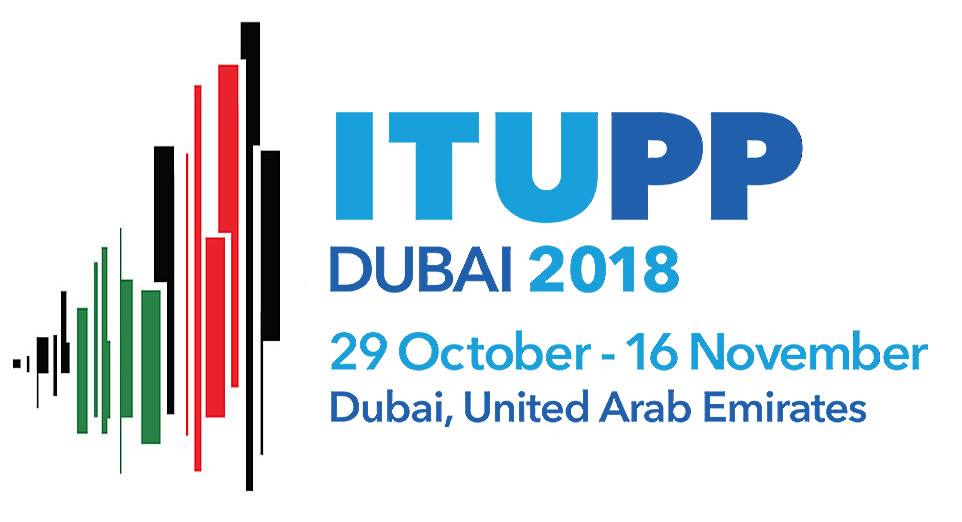This is the version of the backgrounder prepared for the Plenipotentiary 2018 Conference in October/November 2018. For the most recent version of this backgrounder, please see here.
Can you imagine your life without telephone, radio, television or Internet access? Do you know how your watch tells the correct time? ITU is behind all of these.
ITU’s work affects the lives of almost everyone on the planet. As the United Nations’ specialized agency for information and communication technologies (ICTs), ITU’s work underpins the many complex systems and technologies that make modern life possible.

Enhancing today’s technologies
ITU’s 193 Member States work closely with over 760 technology companies, industry bodies, and academic institutions to develop international standards and recommendations to ensure that ICTs are safe and easy to use. Competitive businesses come together under the auspices of ITU’s technical Study Groups to collaborate and agree on global approaches to network interconnectivity and future developments.
Making international calls?
ITU is behind the technical standards and country codes that make international phone calls possible – so that when you dial +1 for North America, +33 for France or +86 for China, your call always gets to the right person, no matter where you are in the world.
Going abroad with your mobile? ITU frequency allocations and globally harmonized standards enable international roaming– meaning you can go on using your mobile when you travel from one country to another. They also help make terminals affordable by permitting the economies of scale arising from a global market.
Want to listen to the radio in your car or watch television?
ITU frequency planning and standards ensure high quality reception of TV and radio programs from free-to-air or satellite broadcasting.
Want to watch a video on your smartphone?
ITU multimedia standards define the video streaming capability of most modern devices, network standards provide the broadband transport needed to support high-speed data rates, and ITU radio frequency management ensures sufficient bandwidth, without causing interference to other wireless services.
Want to change contracts and retain your number?
ITU’s work on mobile number portability helps operators and regulators around the world ensure your number remains unchanged.
ITU is also responsible for managing the radio spectrum. Without careful management of this system, many forms of telecommunication that we rely on daily, such as cellular technology, WiFi and emergency radio services, would be subject to regular interference. Furthermore, ITU coordinates the global satellite system, allowing for reliable international communications and the GPS geo-location services used in many of today’s devices.
Setting the standards for tomorrow’s networks
ITU is the pre-eminent agency setting international standards for radiocommunication systems, interconnection of networks, data transport, online security, broadcasting systems and multimedia systems, such as streaming audio and video.
Modern mobile broadband systems are based on the ITU's International Mobile Telecommunications (IMT) standards which were developed in close collaboration with ITU's Member States, national and regional standardization organizations, network operators, equipment manufacturers, academia and industry. ITU is now working together with these partners in the same open process to establish the overall framework for 5G to meet the needs of the digital economy in 2020 and beyond.
This next generation of IMT will help enable fast, reliable communication to support all kinds of emerging technologies such as intelligent transport, wearable devices, Augmented Reality and Internet of Things (IoT) infrastructure.
Promoting ICTs for a better tomorrow
With the recent advances in machine learning technology, public and private sector leaders alike have expressed interest in the potential of Artificial Intelligence (AI), and concerns over its misuse. ITU, as an organization committed to ensuring a sustainable future through ICT, launched its inaugural AI for Good Global Summit in 2017. This meeting brought together world leaders from member states and private businesses to drive the conversation about policies around AI, and how AI may be used to support the achievement of the UN’s Sustainable Development Goals, so that all of our lives are made better.
In a similar vein, many of the conversations at ITU Telecom World 2017 (an annual conference hosted by ITU) were focused on the global harmonization of emerging technologies such as AI, IoT and digital finance. Through events such as these, ITU is helping ensure that that these technologies will lead to social benefits and improvements in quality of life.
Providing valuable information on key ICT trends
ITU develops, collects, systematizes and publishes useful information related to ICT. These publications cover different aspects of ICT such as the ITU’s bestseller, the Maritime Manual, on emerging technologies and spectrum management techniques or ITU’s annual flagship publication Measuring the Information Society which includes the ICT Development Index (IDI), ranking 157 countries according to their level of ICT access, use and skills.
In 2017, ITU launched a significant update to its news platform, ITU News. Here, ITU is sharing insights from global thought leaders on emerging trends, and providing information around international regulations and policy decisions. Stay informed by subscribing here.
Addressing global environmental and technology issues
ITU is committed to using ICTs to address global issues such as climate change, as well as deploying emergency equipment and expertise to aid humanitarian responses and restore vital communications links in the wake of natural disasters and catastrophes.
As the effects of climate change become increasingly evident around the world, countries are facing the immense dual-challenge of mitigating the causes of climate change and adapting to its effects. Given these pressing concerns, ITU has been examining the carbon footprint of this high-growth industry, working hard to make ICTs more energy-efficient. ITU is also supporting the transition towards a ‘green economy’ through its work on Smart Sustainable Cities.
ICTs can also help mitigate the effects of environmental disasters and catastrophes, ensuring that aid workers have access to emergency telecommunications in the immediate aftermath, and helping bring medical aid and support to where they are most needed.
These are just some of our activities that we believe matter to you. For more than 150 years, ITU has evolved to facilitate international ICT networks and services in the rapidly changing ICT sphere, all with one goal in mind: connecting the world to ICTs that improve lives at scale.
